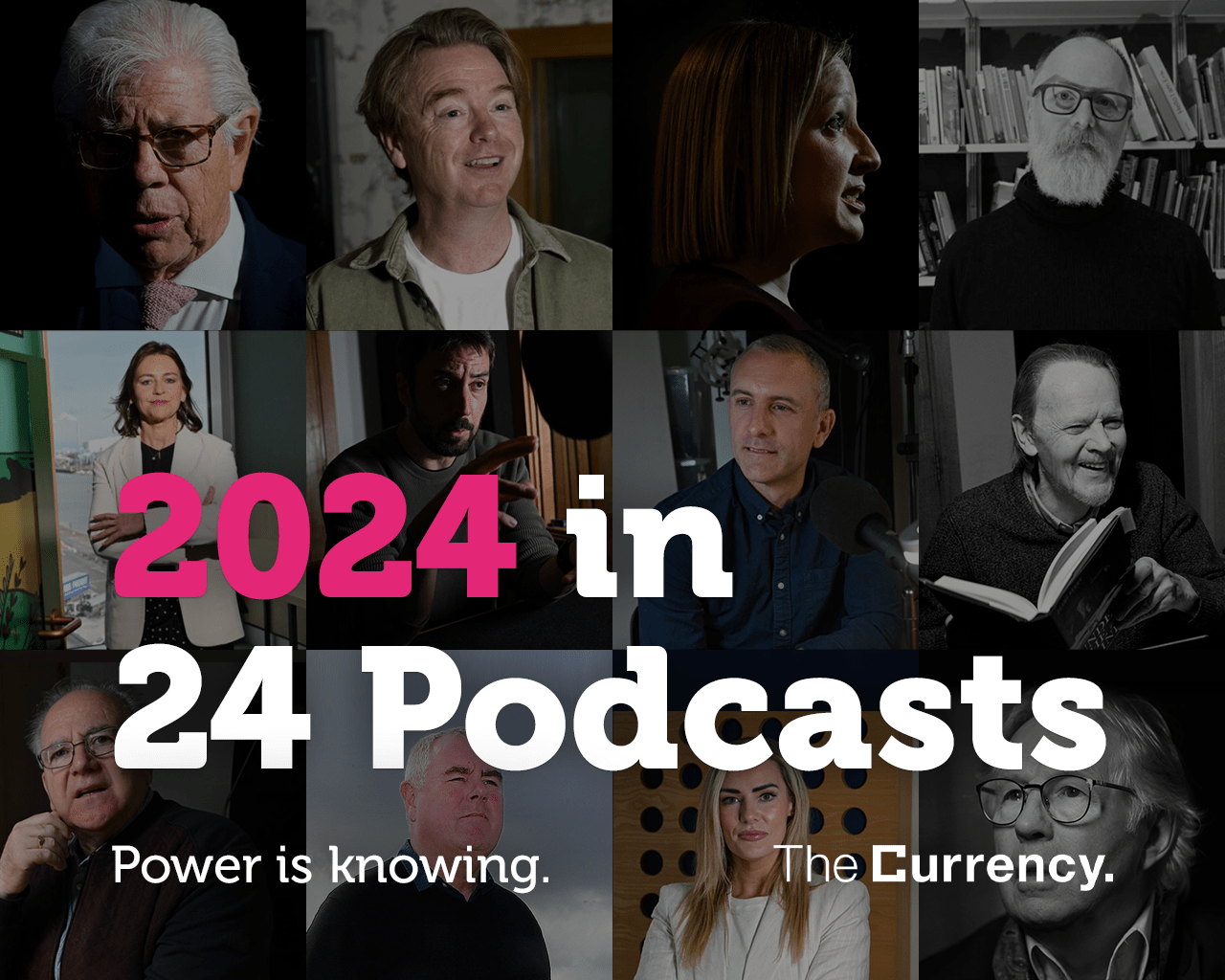Beacon Studios first opened its doors in 1995, and, in the decades that followed, has recorded everything from award-winning radio and TV commercials to gold and multi-platinum comedy albums. More recently, it has broadened its services to audiobooks and podcasts.
Located in a basement on Baggot Street, Beacon has become a Dublin institution, renowned for the quality of its work and the welcome of its staff. Noel Storey, who launched the studio almost three decades ago, works from the studio at the back of the office, while Gerard Gogan mans the front studio. Tara Mooney, affectionately known as ‘Mrs Mullen from accounts’, keeps the operation running like clockwork.
Since we launched The Currency, we have published more than 400 podcasts. The vast majority have been recorded in Beacon Studios, with Noel and Gerard on the sound desk.
For our guests, it is a perfect environment. The studio is inviting and homely, and puts them at immediate ease. They feel free to talk and open up. Quickly, they forget about the microphone in front of them and the sound desk outside. It all makes for compelling content.
I have recorded many of the podcasts. Sam and Dion are regular podcast hosts also. This year, Alison recorded two podcast series, Brand Matters and Franchise Matters. Many of our other colleagues record bespoke podcasts also. However, regardless of the host and the guests, the team at Beacon remain a constant. And we hope it stays that way.
As we prepare for 2025, I have selected 24 podcasts from 2024 that tell the story of the year, and, over the holiday period will hopefully give you something pleasurable to listen to.
In addition to the audio, we also write an article summing up the content. We do this because our readers asked for it, and we are happy to provide it as an additional service.
*****
David McWilliams on humanity, money, and Ireland’s missed opportunity
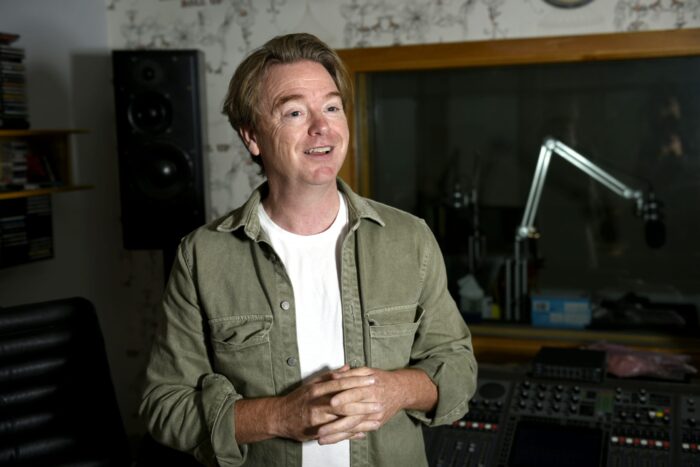
The economist and author David McWilliams has always had a rare ability to spot a wider economic trend and explain it in a way that resonates with people. And he has never been afraid to take a contrarian position, as evidenced by his prophetic views on Celtic Tiger Ireland.
He joined me to discuss his new book, Money: A Story of Humanity. It was a change of direction for McWilliams, geographically and culturally. His previous books had focused on Ireland. This book was far larger in ambition, attempting to tell the history of the world – from 18,000 BC to the present – through the medium of money. “It is a different approach for me. It’s more cosmopolitan, more international, much more historic, probably much more ambitious,” he says.
In the podcast, he discussed the role of money in the evolution of society. But, loyal to his roots, he also gave his views on the contradictions of the Irish economy. “I always thought that Ireland is about three or four good decisions away from creating an amazing social democratic system,” he says. “In the last few years, Ireland has become unserious about the business of economics.”
“I’m centre-right in the European sense. In Ireland, people like me are politically homeless”
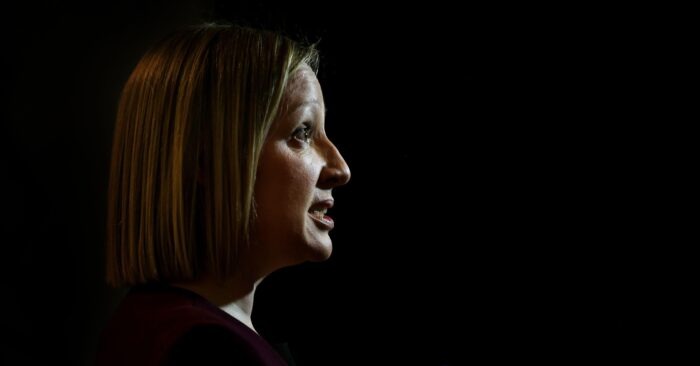
I invited Lucinda Creighton on the podcast to discuss the outcome of the general election and to get her view on the thorny issue of government formation. However, quite quickly, the interview went far beyond that topic, and into a deeper conversation about political identity, the fragmentation of the political spectrum, and to what Creighton believes is the lack of real ideology in Irish politics.
A former Fine Gael TD and one-time Minister of State for European Affairs, she argued that the combined decline in support for the Fine Gael and Fianna Fáil over the last number of decades is a direct response to the shifting ideological stance of the parties.
“Their support base has halved. And I think there’s a direct correlation between that and the fact that both parties have actually shifted slowly but surely to the left,” she says.
According to Creighton, the lack of a centre-right alternative was already having a serious impact, particularly in relation to public spending.
“We have inefficient public services, which is tarnishing our reputation internationally. It’s feeding into the health crisis, the housing crisis, etc. So these are big issues, but the solution from all political parties is just spend, spend, spend. And that’s depressing, as far as I’m concerned,” she told me.
“There is nobody advocating for that sort of focus on prudence, fiscal responsibility, the things Fine Gael used to represent.”
“Police don’t storm into a house at 7 am because of a documentary”
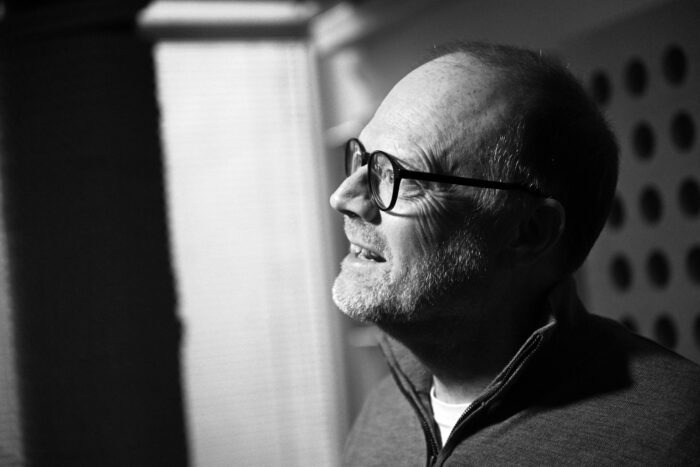
Trevor Birney’s career has been defined by curiosity. The producer of the Kneecap movie, he has written a book which tells the story of the Loughinisland Massacre and the day he was arrested for making a film about it. In this podcast, he talked extensively to Dion Fanning about creativity in Northern Ireland, Say Nothing, and the film he has produced about Saipan.
He tells the story in the podcast of how a family weekend with relations visiting from England was upended as he was taken into custody, along with Barry McCaffrey, and how they challenged the decision to arrest them by seeking a judicial review.
In 2020, the PSNI agreed to pay £875,000 (€1.05 million) in damages to Fine Point Films, Birney, and McCaffrey for wrongfully arresting them.
For Birney, it is an indication of the priorities in policing in the North.
Birney continues to work on a range of projects. He talks in the podcast about approaching Sean Quinn for the magisterial documentary broadcast on RTÉ in 2022 while next year, the film he has produced about Saipan, Roy Keane, and Mick McCarthy is expected to be released. “I think people are going to ask themselves questions,” he says of it.
Franchise Matters: Rosalind Beere on the benefits and pitfalls of the franchise model
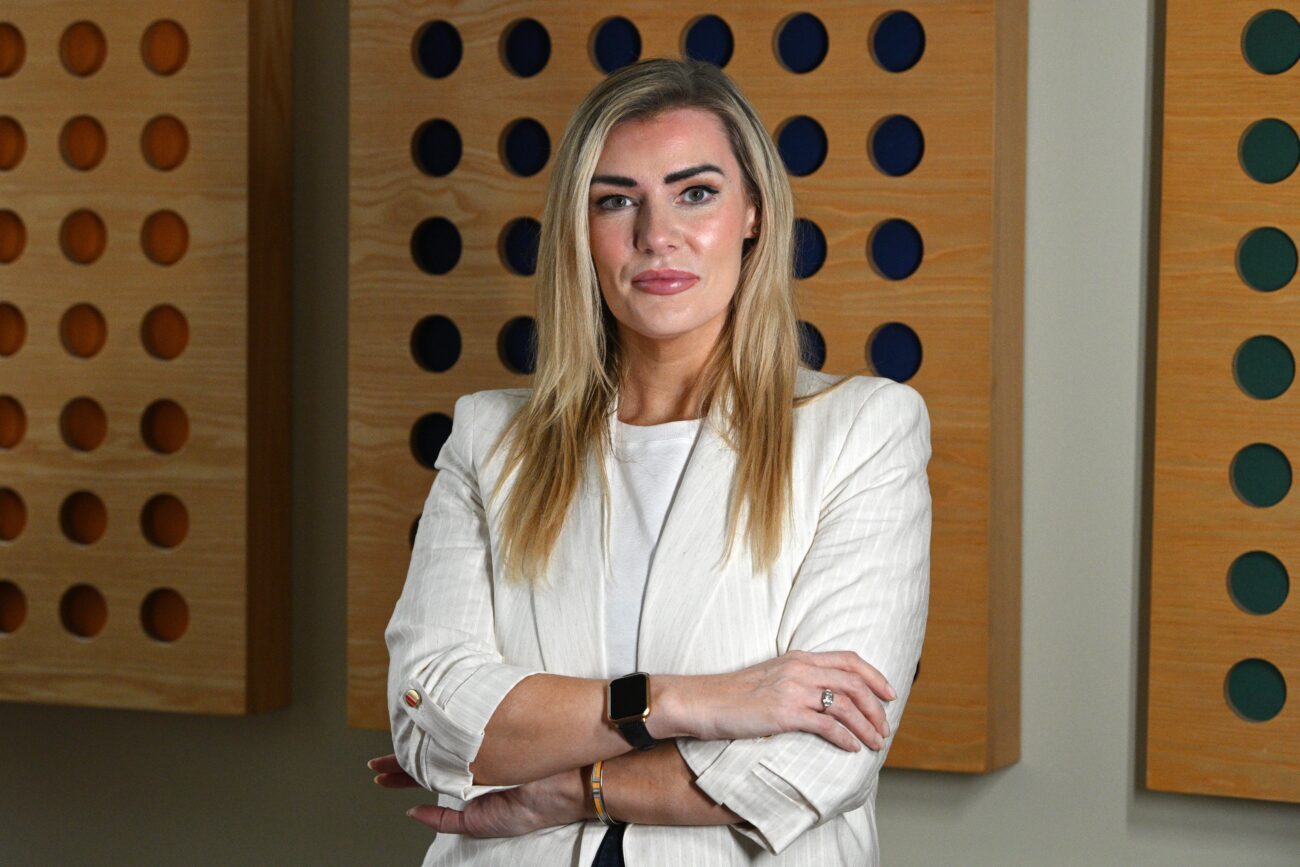
Rosalind Beere knows franchises from the inside out, and the outside in. She was just six when her uncle and father launched Abrakebabra, and she spent her formative years watching the fast-food chain expand into one of the country’s largest franchises.
She went on to study the topic in university, obtaining a doctorate in business from Trinity College Dublin for her work unravelling the impact and evolution of franchising. She has even written a book on the topic, The Role of Franchising on Industry Evolution.
So, when Alison began Franchise Matters, a series on the issue of franchising, Beere was a great place to start.
Now an adviser and lecturer on the topic, she talks about when rolling out a franchise makes sense, how to avoid trouble, and why franchisees are entrepreneurs in their own right.
The way Beere sees it, the relationship between franchisee and franchisor is what will make or break a business. In the end, however, she said most of the relationships end. “It’s a bit like a marriage sometimes with the seven-year itch,” she laughs. “They’ve made a bit of money, they’ve got their idea, it could be a retirement or it could just be that they want to go off and do other things, but there is a timeline.”
“In different circumstances, I think Gerry Adams would have got the Nobel Prize”
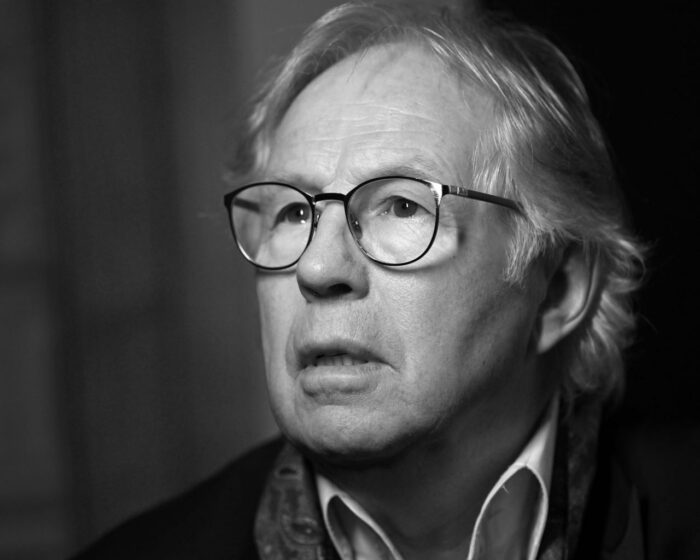
As well as being a renowned journalist, there is a showman in Eamonn Mallie too. When he arrived at Beacon Studios for the podcast recording and heard a photographer was waiting, he joked that a boy like him from South Armagh doesn’t use makeup.
The showman and the journalist aren’t mutually exclusive. The secret of survival as a journalist in the North, he says, was never to trade information.
He sat down with Dion to discuss his memoir, Eyewitness to War and Peace. Mallie told Dion he viewed himself as a “fireman” at a certain point in the Troubles, moving from one atrocity to another. The darkest days, he believes, were following the SAS shooting of three IRA members in Gibraltar in 1988, the attack by Michael Stone during the funerals at Milltown Cemetery which left three people dead, and the subsequent killing of two British soldiers who found themselves caught up in those funerals.
Peace is now in the ascendency, and he spoke at length about what it means to him, and to the communities he writes about.
“I started to get worried quite early about my place in the global tennis world”
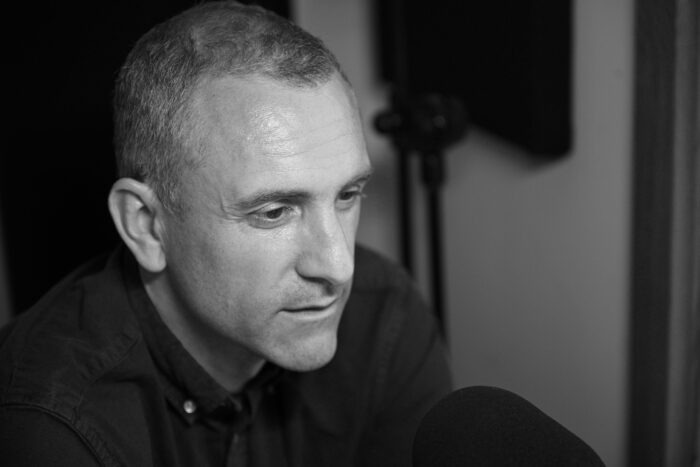
Conor Niland’s memoir, The Racket, On Tour with Tennis’s Golden Generation — and the other 99%, was the breakout book of the year, winning the prestigious William Hill Sports Book of the Year for 2024.
Bookshops are crammed with sporting memoirs. Most are dull, sanitised portraits of dull, sanitised athletes, the majority of whom are multi-millionaires. Niland’s book is exceptional for its exceptionalism. It is his unvarnished truth of life as a journeyman tennis professional, a player who flirted with the elite but who never truly became one of them.
He to me about the process of writing the book, his upbringing, and his career on the tennis circuit.
Niland’s book is part memoir, part sports psychology, and part social science. It exposes the hierarchies that exist within the sport, and the gruelling exhaustion of life on the pro tour. It also examines his own relationship with tennis, as it moved from being a sport he loved to consuming his life.
All of this came across in the podcast. “I think I was in a nice position where I spent so much of my career on the lower Challenger Tour and the Futures Tour below, but I also was at a level where I got access to the very biggest tournaments and got on court with the biggest players,” he said. “ So you’re getting the life of the player who’s below that, but you’re also getting to see a little bit of glimpses of the very top.”
“I know stuff about my clients that nobody knows. I can’t trust an individual who is not willing to be vulnerable”
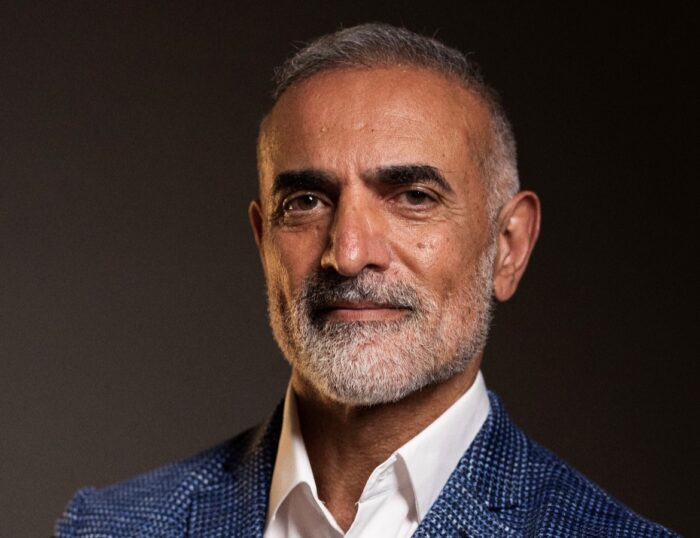
In July, I hosted a three-part podcast series called Mindset Matters in association with the Wealth Summit. In the first episode, I spoke with Shari Wenk and Tim Grover.
Wenk is a sports agent, a bestselling author, founder of the SWL Agency and an ace negotiator who cuts deals on behalf of the likes of the Tiger Woods Foundation, Dennis Rodman, and Walter Payton. Tim Grover is the CEO of Attack Athletes Inc, which works with athletes and business leaders. Grover came to prominence as the personal coach and trainer of Michael Jordan and Kobe Bryant, but he has also worked with thousands of other athletes and professionals as a personal trainer.
They have teamed up to write two international bestselling books and work together as business partners on a host of ventures. In a joint interview, they talked about resilience and high performance.
“People are afraid of the dark and I would say all your new beginnings start during your darkest moments, during those darkest times, but we have all been taught to just look at the bright side of things,” Grover said.
“And everything is going to be positive and think positive and so forth. Just because you are thinking a certain way doesn’t mean you are going to get that particular action, but what happens during those dark moments? What does it take when they tell an athlete they go into the zone, or a business individual, a CEO and they have to make these major decisions?
“They go to a place where they find themselves in a dark place, in a dark environment, where it is literally just them and their thoughts. That is it. There is nobody else around.”
How a pen picture of a thirty-something called Ciara helped transform the An Post brand
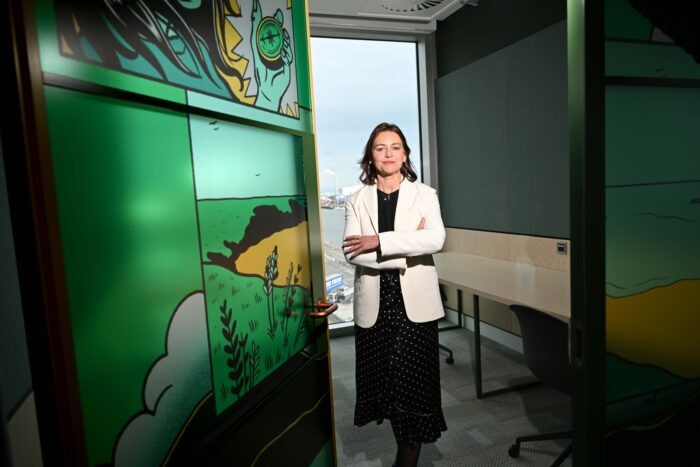
Debbie Byrne has two key roles within An Post. As managing director of its retail business, she is responsible for rolling out its suite of financial products. But she also has responsibility for An Post’s strategic brand development.
The latter is hardly a surprise. Before joining An Post in 2018, she had worked in senior marketing and brand roles across a range of companies including L’Oréal, Eircom, Pepsi and Life Style Sports.
So, it was fitting that Alison selected her as the first guest for Brand Matters, a podcast series that examined the role of brands in business. Byrne spoke about her career, transitioning the An Post brand, stakeholder capitalism, and the importance of doing the right thing for the right reason.
“I love change. The thread that connects all of those jobs is that a lot of those brands would have been at a transition point in terms of stagnant business growth. And I don’t know whether I’ve deliberately done that, or it’s just been a bit of a subconscious thing in terms of what I’ve been drawn to — but I’ve always just enjoyed renovation, business growth, innovation. An Post was at that juncture when I joined,” Byrne told Alison.
“There are bigger social issues at play; the Government has to hold democracy together”
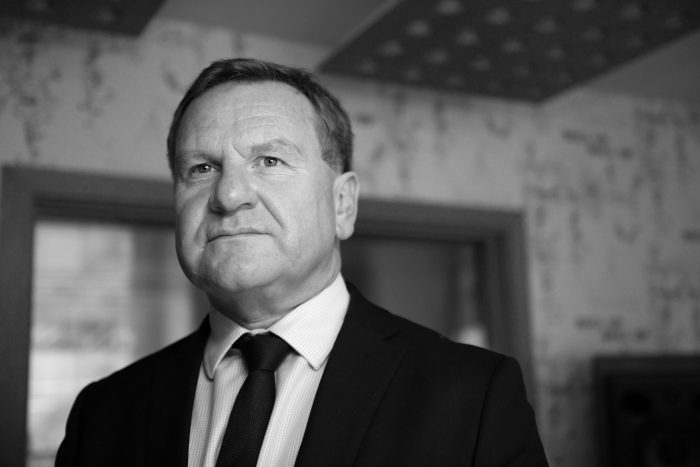
Economist Danny McCoy has spent the last 14 years leading the employers’ group Ibec. He understands the intersection of business and politics better than most. He has been a vocal critic of government in the past. When he sat down with me in advance of the Budget, however, he is sided with the Government over its fiscal advisers, arguing that the coalition was right to breach the National Spending Rule.
McCoy is aware that there is a lot of public anger, and a growing disconnect between the riches of the State and the people who inhabit it.
McCoy has been studying the trend for some time; it is why he has been arguing for great State investment and enhanced public services. “Ireland is living through a resource boom, where the resources are actually intangible. It’s these corporate balance sheets that moved in here for the corporate tax revenue. So, Ireland is a bit like the parable of Midas. Everything it appears to touch right now turns to cash, but we actually need real stuff, we do need real people in the jobs that we need them to do,” McCoy told me.
“This was a dirty, filthy war”: O’Rawe on The Troubles and the inside story on Stakeknife
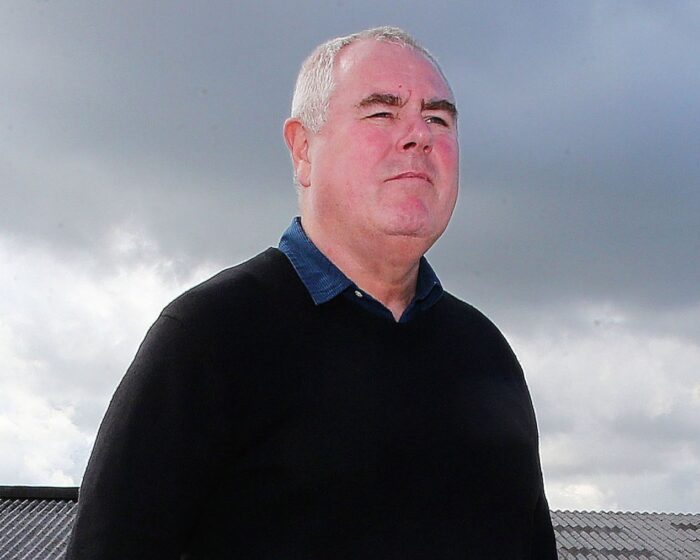
Richard O’Rawe’s book, Stakeknife’s Dirty War: The Inside Story of Scappaticci, the IRA’s Nutting Squad and the British Spooks Who Ran the War, is a devastating account of the tragedies and deceptions that Scappaticci was at the heart of.
O’Rawe, a former H-Block prisoner, sat down with Dion to discuss the many lives of Scappaticci, his own experience as a prisoner during the hunger strikes, and his views on Martin McGuinness and Gerry Adams as they pursued peace, viewed as “treachery in a pristine sense” by many republicans.
“The IRA shot its first informer in 1970 in Belfast – so, if that rings true, the person was an informer, then we must accept that right from the word go the British had a degree of infiltration into the IRA,” O’Rawe says.
“To what extent is another matter. The one thing the Kenova report told us was that there were other people in the Internal Security Unit who were also agents. So that’s when the screw was really tightened, I think.”
“The process we engage with people is helping them see themselves differently”
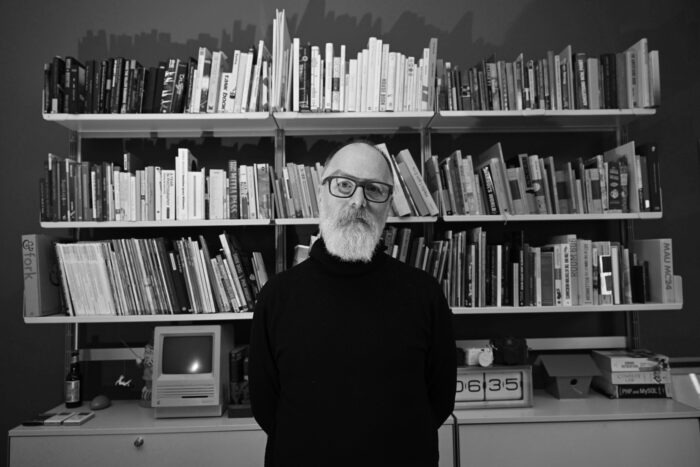
Ciarán ÓGaora and his brand strategy and design business Zero-G have worked with everyone from global multinationals to governments to ambitious start-ups. When he sat down with Alison as part of the Brand Matters podcast series, he talked about the creative process, the importance of understanding your brand, and some of his favourite work.
In the podcast, he delved deep into the world of brands and considered what brands and branding mean. And the more he talked, the more it became clear that ÓGaora looked at a brand through the lens of meaning and insight.
“We work with companies at moments of change. And we draw upon a variety of different skills within that,” he said, adding: “People typically come because they want to look different, whereas the process we engage in with people is helping them see themselves differently, looking at themselves differently first. And that unlocks a whole new set of possibilities.
“We really believe in trying to lean into organisations of whatever size they are, or whatever initiative it is, to lean into who they actually are, rather than pretending to be something else. So when we think about brand, it’s really about that sense of intangible value that something can have. We often talk about reputation; that’s something that exists in other people’s minds. But we’re really interested in what those things are that give one thing value that another thing might not have.”
ÓGaora acknowledged that it might seem like an esoteric concept — and he equally acknowledged that it is not for every company — but, throughout the podcast, he gave a host of examples of where the process had worked.
“You can make a mistake and get slaughtered for it. And God knows I’ve made a few of them over the years”
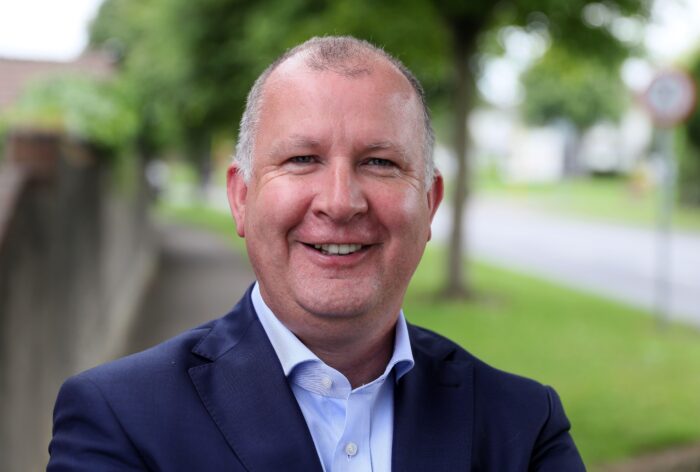
A full professor of politics at DCU, Gary Murphy has long been one of the country’s most prescient and articulate political analysts. His academic pedigree means he understands the nature of politics and power, but, unlike many academic elites, there is a real-world, human element to his analysis.
I asked him to join me on a podcast the week before November’s election to preview the vote. However, the conversation went in a different direction, veering from his upbringing in Cork to the shifting sands of Irish political ideology to the toxicity of social media.
“I think many of my colleagues just don’t want to get involved in controversies,” he says, adding: “You can make a mistake on TV and radio and get slaughtered for it. And God knows I’ve made a few of them over the years.”
Overall, Murphy argues that, electorally speaking, Ireland has moved to the left.
“I think there’s more of an expectation now from people that the State should help them — get them a house, provide the better health service and the like. I think there’s more of an expectation that the citizens of the State should be looked after by the State and its political representatives. Whereas, I think there was an expectation, certainly as far as I can remember growing up, that you looked after yourself.”
Trumpism, Bezos and Watergate: When Sam Smyth met Carl Bernstein
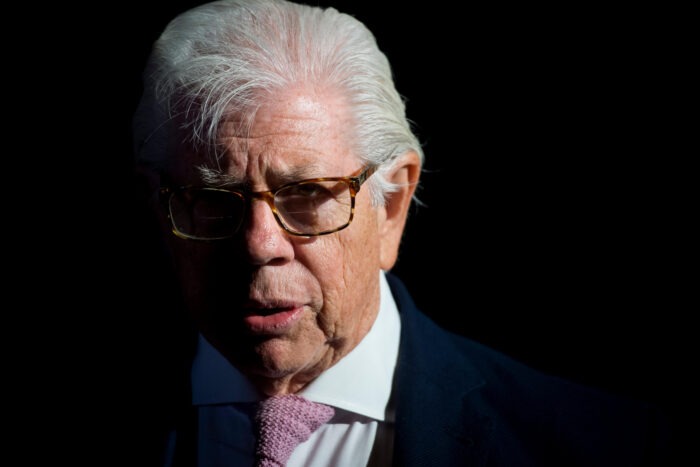
In his new book Chasing History: A Kid in the Newsroom, Carl Bernstein tells the story of how he found his calling, and meaning, in journalism. It is an absorbing tale, crammed with anecdotes about the characters he stumbled across through the journey.
Bernstein occupied a rarified place in the world of journalism. Together with his fellow Washington Post reporter Bob Woodward, he ranks among the two most famous journalists in the world, renowned for their work bringing down US President Richard Nixon. He understands power, and the importance of holding it to account.
In this podcast with Sam Smyth, he delves into the relationship between power and politics, examining the impact of Donald Trump on US society. He also talks about the decision by Jeff Bezos to pull an editorial by The Washington Post endorsing Kamala Harris, his reporting on the Vatican, and his recollections of his early days in the newsroom.
He also spoke at length about the appeal and impact of Trumpism. “A huge number of our citizens are looking for ways to express their dissatisfaction. And for 30 years, thereabouts or even a little more, we’ve had a cold cultural civil war in this country – fighting virtually every kind of issue imaginable. And then Trump ignited that cold civil war and took it somewhere where it had never been, and I think he’s obviously succeeded,” he told Sam.
Franchise Matters: The life and times of Brody Sweeney
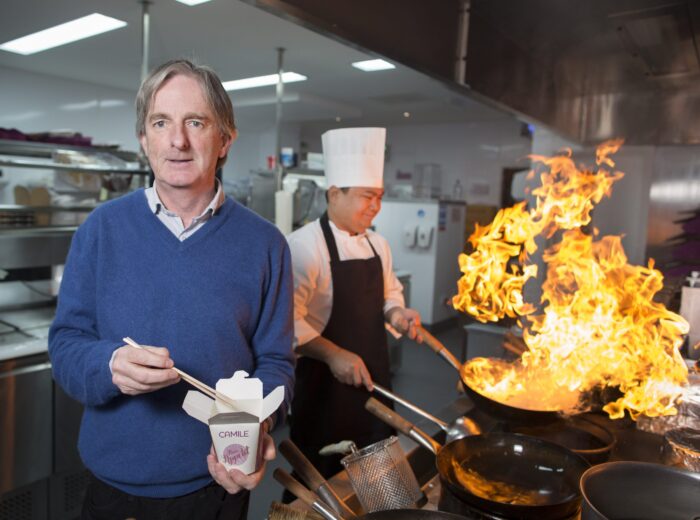
With O’Briens Irish Sandwich Bars, Brody Sweeney created a global brand with 340 outlets around the world. When he ceded control of the business during the financial crisis, he dusted himself down and started again. The fast-growing Thai restaurant and delivery business Camile Thai was born.
In this episode of Franchise Matters, Sweeney opened up about his life and times with Alison.
“We went bust in 2009. It wasn’t great craic. I wouldn’t recommend it to anyone,” he said. “I am philosophical about it. It was a horrible time. Didn’t enjoy it a bit, but I think, you know, it is the story of our lives. We go through horrible times. I had a sister who lost a child ten years ago. That’s deeply tragic. That’s a really hard cross to bear. I went bust, lots of people go bust. Not great fun. But you move on.”
His company is now doing well, but he spoke about the wider difficulties of the food and hospitality sector.“It’s difficult to make money in restaurants. And that has an effect on your selling franchises. So, everyone wants to get involved in the up-and-coming. But we are in an industry at the moment where we’ve had a lot of cost increases, costs that we’ve no control over, like bank interest rates or food inflation or packaging. But we’ve also had a lot of government-imposed costs that have really, really put a huge dint in our profitability,” he said.
“I described what happened to Protestants in this state as ‘bloodless genocide’”
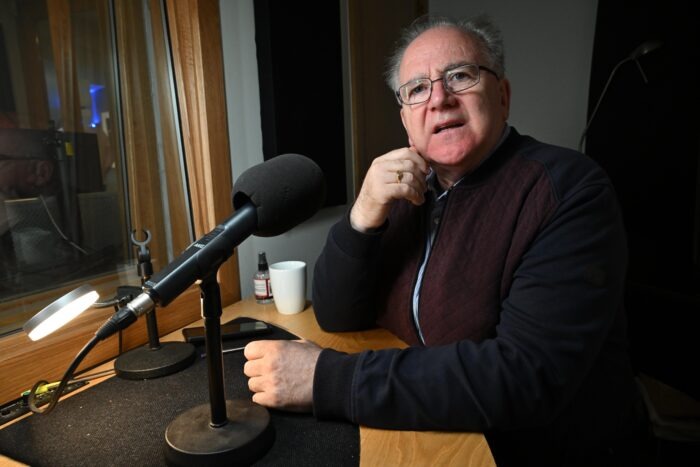
Patsy McGarry’s career as The Irish Times’ religious affairs correspondent spanned the implosion of the Catholic Church in Ireland. His memoir Well, Holy God details those extraordinary and distressing times. In this podcast, he talks to Dion Fanning about why his father stopped going to mass, the bloodless genocide of Protestants in Ireland and the intransigence of the Catholic Church.
McGarry had a background in political journalism and had received journalism awards for his coverage of Charles Haughey’s downfall and the rise of Albert Reynolds.
“Journalists were much more interrogative where politicians were concerned,” he said. “They questioned. They weren’t disrespectful, but there was no deference. I was determined to continue that when I went into covering religious affairs. Respectful, but without deference. I would have to say that up to then there had been — I’m not saying I was a pioneer in this — but there had been a tendency to be over deferential to prelates, to church leaders, because they were church leaders.
“In their behaviour, it was not justified. So that was the approach I took from the very, very beginning. I would ask them questions the same as I would ask anybody else, and question them aggressively if necessary, interrogate them aggressively if necessary. They were quite taken aback. And that wasn’t peculiar to the Catholic Church.”
“I used to sell time. Then I sold days. Now I sell value”

What do Google, Novartis, the NTMA, Glanbia, AIB, Philip Morris, the Central Bank, Walls and Sodexo all have in common? The answer is Margaret Considine, the founder and chief executive of the EQuita Group, a Dublin-based business consultancy and corporate training company. Launched 23 years ago, EQuita and Considine have worked with all those companies – and many more besides – across a range of issues.
I spoke with her as part of the Mindset Matters podcast series, where she talked about the future of the workplace, the importance of employee engagement, and work-life balance.
“Attitude is the first thing you have to put on every day. You need to paint on the attitude you want people to see so I am constantly passionate. I am constantly curious, and I am constantly kind. I won’t do you a bad turn. I will cut the roughest deal with you if need be. Nama don’t have me negotiating for them for nothing but I lead with kindness,” she told me.
How football sold itself to sportswashing: The inside story of a game that lost itself
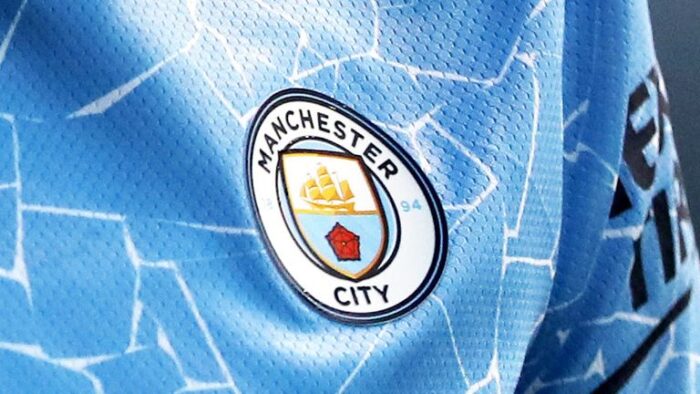
Irish sports journalist Miguel Delaney has been at the forefront of challenging the dominance of state-owned football clubs in England. His book States of Play is a detailed study of how football became detached from its roots and whether there is a path back. He sat down with Dion to talk about how football lost itself in money and politics.
Delaney talks about how the old structures were reframed by impatient revolutionaries. Delaney speaks too of the risks that have come with enraging football supporters who want to be left alone with their dreams and their dreams are sustained by the riches of their owners, no matter where that wealth comes from. Supporters of clubs like Newcastle and Manchester City have become a useful army defending their owners when asked the necessary questions by journalists like Delaney. But the real questions are for those who allowed this to happen.
Barry Scheck on using science to right the wrongs of the global judicial system

The attorney and law professor Barry Scheck was one of the first to link the complicated science of DNA with criminal law back in the 1990s. In the decades that followed, The Innocence Project, the non-profit organisation that he co-founded with Peter Neufeld, has used DNA evidence to help exonerate hundreds of people who were wrongly convicted.
In this podcast with his friend Sam, Scheck talks about the evolution of science in criminal trials and explores how AI could be the next breakthrough. He talks about the work of the Innocence Project, the nature of criminal defence, and some of his most prominent cases, including OJ Simpson and Louise Woodward.
“The son of a show business agent in New York, he has been a lifelong devotee of Bob Dylan’s music, and the widely travelled lawyer has made many visits to Ireland, usually with his wife, Dorothy Rick. Their home is in Brooklyn, New York,” Sam wrote in an accompanying essay.
“His private convictions and public obligations at the Innocence Project fired his admiration for Seamus Heaney and his favourite poem, The Cure at Troy. In 2013 Scheck rang me to say that he wanted something special to celebrate the 21st anniversary of the Innocence Project in New York and suggested Seamus Heaney.”
“Am I paranoid about countries in the Middle East offering money and US trade changes? Of course I am”
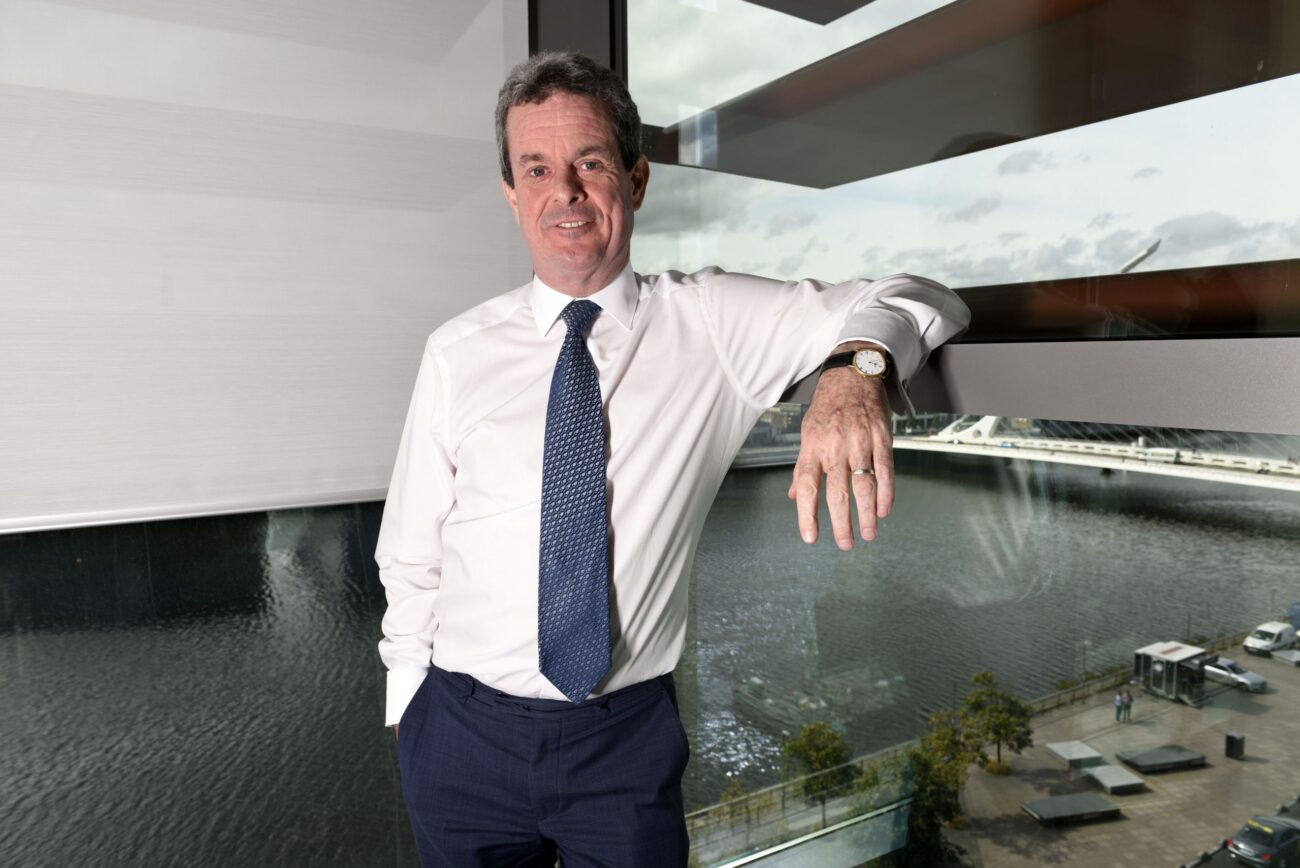
There were many places to begin a conversation with Feargal O’Rourke. O’Rourke, an accountant, spent much of his career structuring the taxes of US multinationals who had set up outposts in Ireland. The Wall Street Journal credited him last week with having helped “design the country’s corporation tax system”. He may have stepped down as managing partner of PwC, but, as the recently installed chairman of IDA Ireland, he still exerts much of his energy convincing multinationals to locate here.
An election was imminent before we spoke, and O’Rourke, a scion of a Fianna Fáil political dynasty, has shrewd political instincts. And over the course of this podcast, O’Rourke discussed Trump, trade and Irish politics in some detail.
Yet, when he made his way to Beacon Studios, we began with rugby. O’Rourke has just published a book chronicling the history of the Irish rugby men’s team during the professional era. The book, From Rags to Riches; The Irish Men’s Team in the Professional Era, is an encyclopedia containing teams and match statistics of each game over the past 29 years, accompanied by more than 700 pictures and QR codes linking to online video highlights.
“Rugby is not like soccer, where it has been professional for well over 100 years. It is still reiterating. The financial model of rugby has not yet settled. We are fortunate. We have managed to cut our cloth accordingly and generate enough money,” he told me.
Ed Murphy hit success with Snap Printing and Home Instead. He explains how
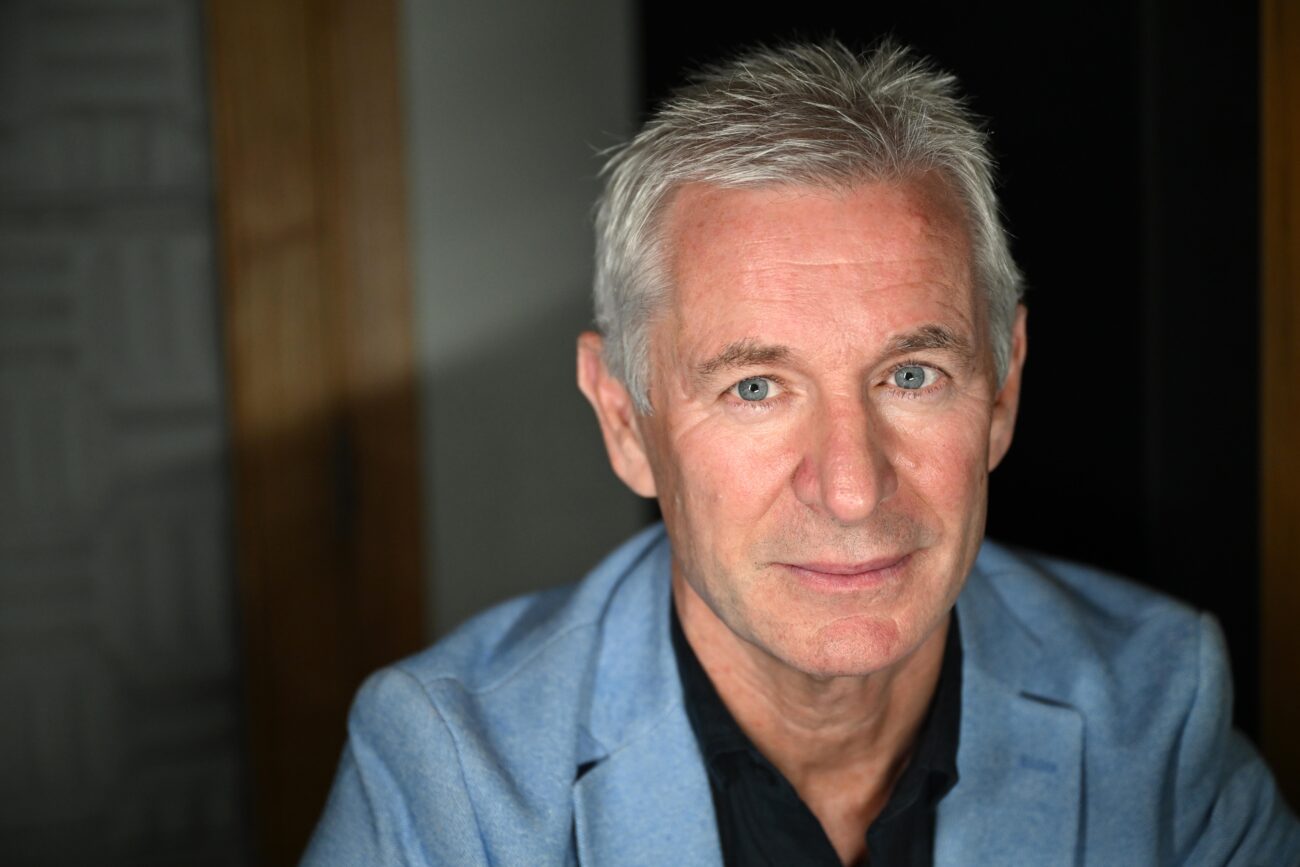
With his business partner Michael Kearney, Ed Murphy turned the Snap Printing franchise into a high-street success. They then repeated the trick with Home Instead Senior Care. Murphy succeeded with the video game retailer CeX, but, by his own admission, struggled with Contours Express, a female-focused gum brand.
So, what makes a good franchise? And how can a master franchisee ensure they secure the right people on the ground? In the latest episode of Franchise Matters, Murphy talked to Alison about the lessons from his own career, why he believes in the franchise model, and the difference between building a franchise and launching a business from scratch.
“There was something corrupting about politics”
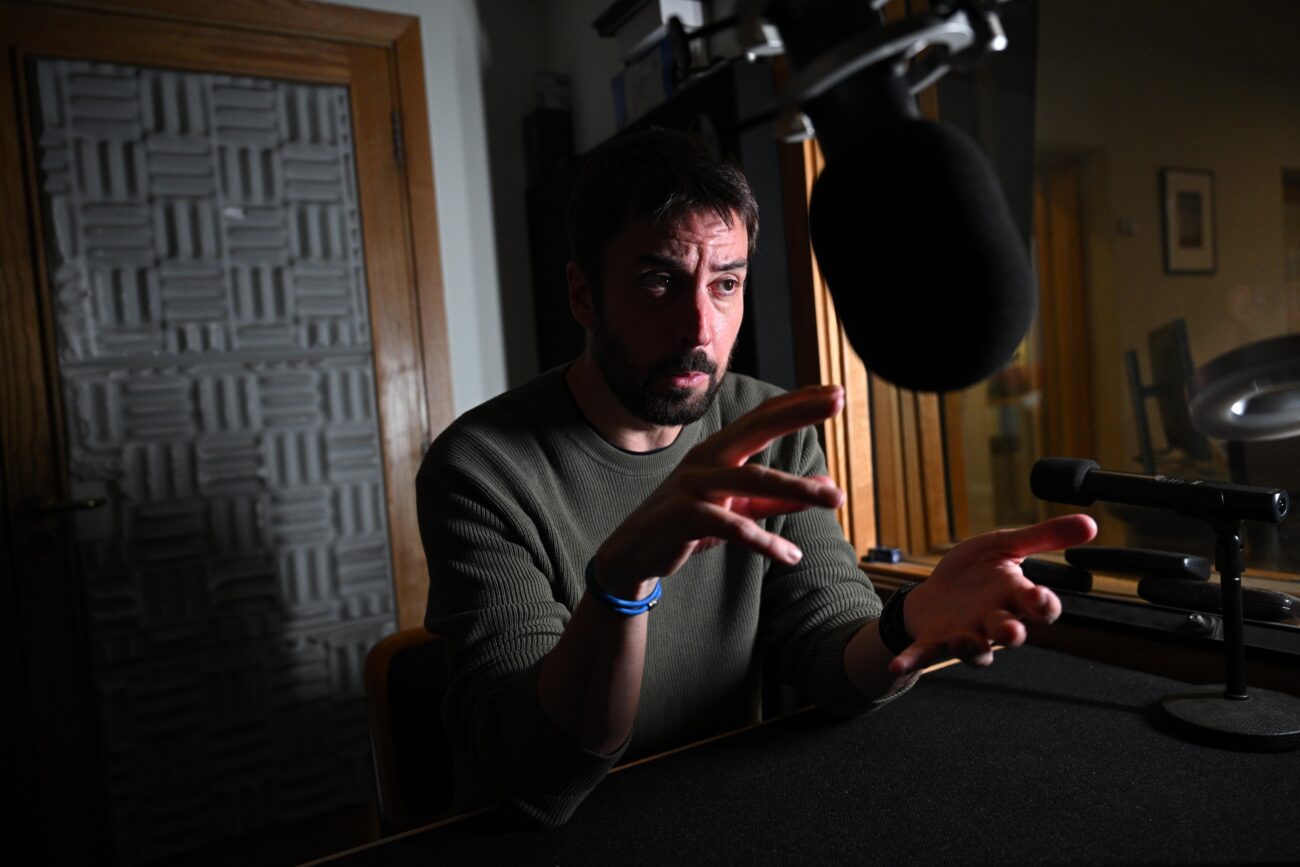
Eoghan Murphy’s political ascent, through Fine Gael and government, was rapid. So too was his political unravelling. His book, Running From Office, examines the often toxic relationship between politics and politicians, exploring the human frailties and fragilities that politicians no doubt experience, but rarely publicly discuss.
The book comes three years after he resigned from the Dáil, and it is easy to forget just how young he was during that ascent to cabinet – and, now 42, remains. Amid the obvious policy failures, it is equally easy to forget that he orchestrated Leo Varadkar’s election as leader of Fine Gael leader and, as such, Taoiseach in 2017. In his mid-thirties, Murphy was a fully carded cabinet minister and one of a small number of Varadkar loyalists running the country.
Interestingly, it was perhaps this closeness to Varadkar, another young political prodigy who is exiting the public stage, that was undone in the Custom House, the stately home of the Department of Housing, something that Murphy accepted when he sat down with me.
“I should have been stronger internally at the beginning of my career in the Department of Housing, but part of it was because I was so close to Leo Varadkar, I was being included in decisions across all of government, and that was kind of incredible because you really are then kind of running the country,” he said.
“I didn’t want to be one of those ministers who goes offside and then isn’t a part of those bigger decisions. So I was trying to balance my proximity to the Taoiseach and my responsibilities in housing. And I thought, if I rock the boat here too much, and I’m pushed out of the room, I’ll get nothing done on housing. I had to try and weigh that up.”
Another draft of history: Shane Kenny on John Bruton, and the division lines in Irish politics
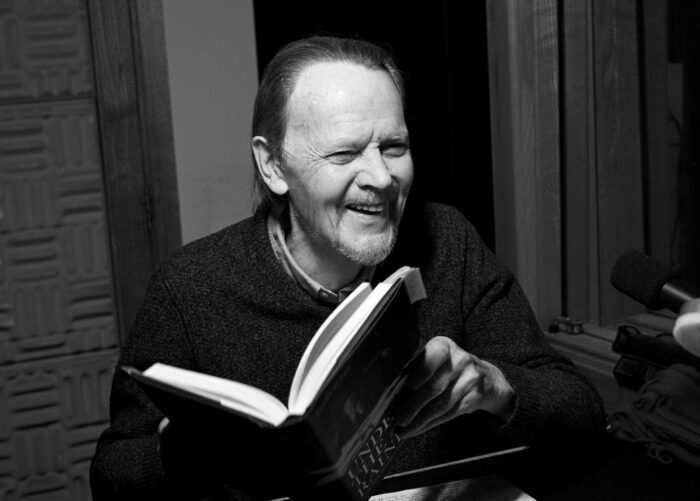
Shane Kenny served as government press secretary during the years of the Rainbow Coalition. They were eventful years in Irish life and for the government: the murder of Veronica Guerin, a divorce referendum, Michael Lowry and the murder of Jerry McCabe.
But what took up most of Taoiseach John Bruton’s time was the peace process. Shane Kenny believes Bruton has been written out of history. In this podcast, he talked to Dion Fanning about why it’s about time Bertie Ahern gave his predecessor some credit.
“We wouldn’t have got to a Belfast agreement, or even the all-party talks, which brought about the Belfast Agreement, without John Bruton and John Major taking a lot of stick and going through a lot of difficulties and doing a lot of hard work getting the all-party talks set up,” Kenny told Dion.
“They’re one of the pillars of the peace process. Just before that, there were two others. One was the framework documents, which were launched by John Major and John Bruton in February of 1995 and the framework documents were the blueprint of the Belfast Agreement. The third pillar to talk about here — I’m not doing them in order — was the agreement on a twin-track approach to dealing with the peace talks.”
Hit by a grinding war, Kyiv multinational MHP vows to “support Ukraine”
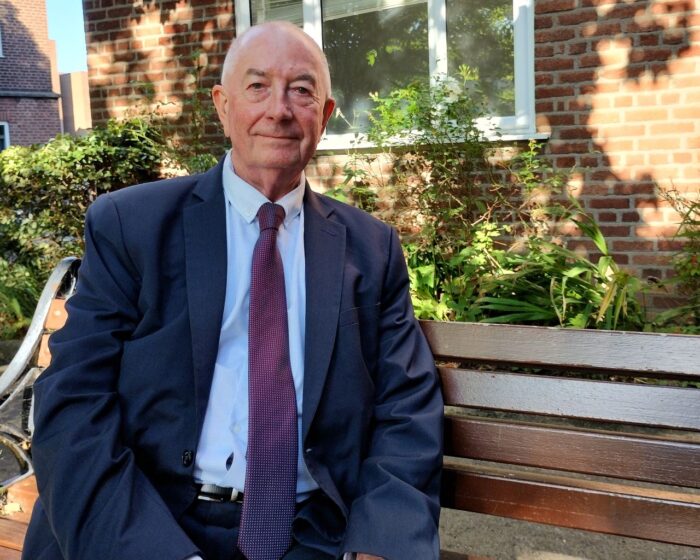
Australian agribusiness veteran John Rich chairs MHP, Ukraine’s largest farming and food processing company. On a visit to Dublin, he told Thomas Hubert about the challenges of running a business when staff are mobilised into the army, export routes are closed and capital restrictions lock it out of money markets.
From paying veterans’ salaries to raising equity from a Saudi sovereign wealth fund, Rich discusses how a modern listed company trades through “World War Three in Europe” and defends the future integration of the Ukrainian agricultural superpower into the European Union.
“There’s less of an appetite for considered political decision-making. Everything is instant and easy”
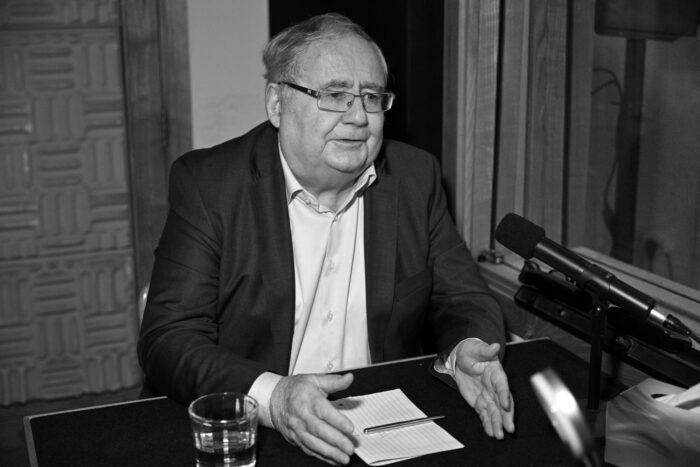
Pat Rabbitte is well-schooled in the art of government formation. He was there in 1994 when the Rainbow Coalition came together, and he was there too in 2011 when the Labour Party coalesced with Fine Gael after the collapse of the economy and Fianna Fáil. In the former government, he was a member of Democratic Left, while in the latter, he was a Labour cabinet minister. In between, he helped negotiate a merger of the two left-wing parties, while also serving a stint as the leader of the Labour Party.
Rabbitte is also well versed in what happened to the smaller parties after participating in government. The Rainbow Coalition called the election at the wrong time, something Rabbitte readily acknowledges, and lost power. Had it held out for a couple of months, the Spring tide might have lasted longer. Meanwhile, support for Labour plummeted in 2016, a dramatic reversal of fortunes generally attributed to the party’s role in the austerity years.
So, as the vexed business of forming a government began in the aftermath of the election, he was the perfect person to turn to. Bacik has not sought Rabbitte’s counsel, but if she did, he would advise her not to enter government.
It is not that Rabbitte is scarred by the party’s last time in government, where he was a cabinet minister. Far from it. He believes the party hierarchy let itself down by not championing its achievements in that government and instead sought to distance itself from it. But the real reason is the party is not needed to form a government.
With Martin and Harris within a whisker of having the numbers, Rabbitte believes Labour would have no leverage to push its own agenda or to thwart policies of the two larger parties that it opposes. In this podcast, he also talks about the future of the left, how he believes Sinn Féin is keeping the far right down, and how he became political in the sixties.
